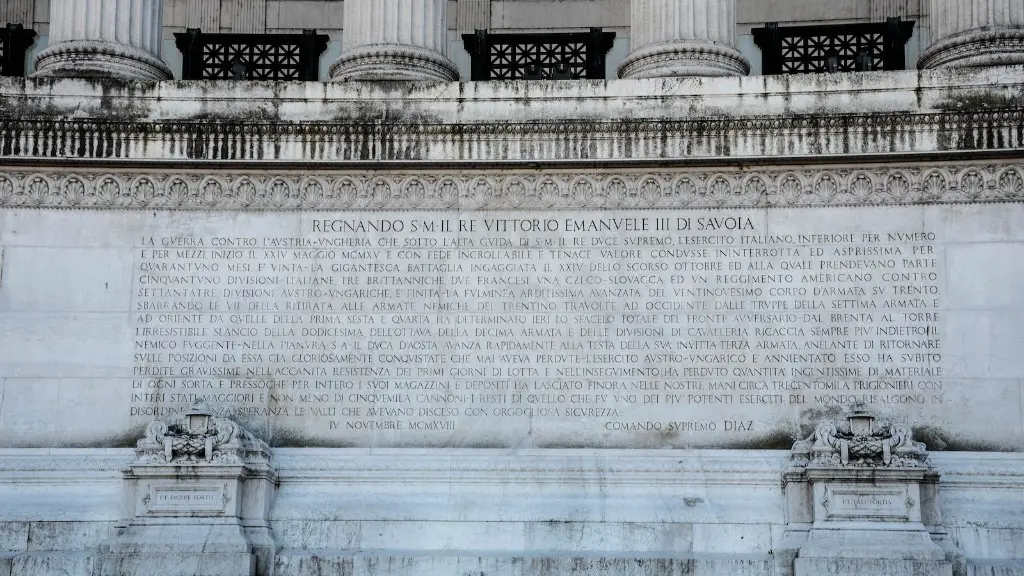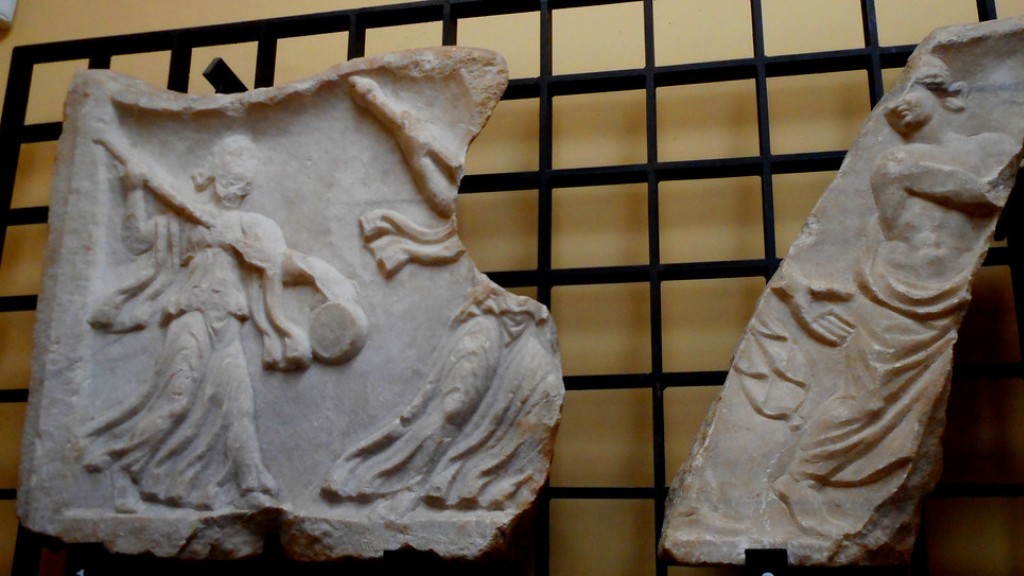Women in Ancient Rome
Though ancient Roman society was male-dominated, women maintained a surprisingly high place in the social hierarchy. Within the home, women wielded a great deal of power, especially when it came to their children and their husbands’ business dealings. Evidence of the prominence of women also comes from the fact that some Roman women owned and ran their own businesses. Women of the time were also well-educated, striving to make a name for themselves throughout society.
Ancient Roman society was based upon traditional gender roles where men held a public role, either in politics within the Roman Senate or in other roles such as the military, while women were expected to stay within the home. Despite the patriarchal society, women played a surprisingly visible and significant role in Roman life. As mothers, daughters, consorts and then ultimately as citizens, women played their part in various aspects of Roman social life. Women were significant contributors in literature and philosophy. Roman matrons were expected to come from respectable families and contribute to Roman society by raising good citizens and by becoming exemplary wives.
The power women held in the household was highly respected by Roman men, who believed that good education of the young was an asset for the family. In exchange for their protection and resources, Roman women provided the men with the necessary labor and support to facilitate the running of the family. In return, Roman men provided their wives and families with the necessary protection and legal status.
It is worth noting that some women were able to own property, which was a significant source of power in Roman times. Roman women of a higher social class were able to take part in business dealings and even make investments, granting them a level of financial autonomy. This was extremely progressive given the traditional nature of the society, demonstrating that women were not completely powerless within the structure of Roman society.
Amongst the upper classes, female children received an education which was both broad and with depth, enabling them to excel in literature, philosophy, politics and mathematics. This education was often among the best in the world of its time. Roman women were respected for their intellect and their abilities in public discourse, often taking part in symposia and other public events.
Despite the fact that Roman women wielded a lot of power, marriage still posed a problem for them due to the fact that their legal rights were limited. Marriage put a wife under the power of her husband, who would gain control of her community and legal rights. Fidelity was expected of the wife, but not of the husband. In some cases, a wife might even be accused of adultery if her husband took a mistress.
In conclusion, it can be seen that women in Ancient Rome were able to wield a lot of influence in the household and the society, primarily because of the good education they had and their level of financial autonomy. This goes a long way towards helping us understand the true nature of Roman society, which, while patriarchal in its structure, had far more complex and progressive elements to it than is generally recognized.
Women in Politics
Although women in ancient Rome were not eligible for political office and thus had no say in politics, this does not mean that they had no influence at all. Roman women exercised considerable influence on their husbands, who in turn often carried out their wishes in the political sphere, as well as in their private lives. This form of indirect power was quite significant, as it could often have profound effects on Roman politics and the direction of the state.
This is demonstrated clearly in the careers of men like Julius Caesar, who had a great deal of influence due to his relationship with his wife Calpurnia. Similarly, Cicero, another influential Roman politician, was largely guided by his wife Terentia in all matters, political or otherwise. It is also noteworthy that some of the most prominent Roman emperors, such as Augustus, were heavily influenced by their mothers and grandmothers. Thus, though women may not have been politically active in the same way as men, they still held the reins of power and shaped the decisions of Roman leaders.
Despite the considerable power that women held in Roman politics, they still did not have any formal rights or political offices to which they could be elected. In fact, it was even illegal for women to vote until the year 88CE. This was unsurprising, as voting was seen as a masculine activity and voting rights were closely guarded as a privilege of manhood. This ultimately meant that women did not have a direct say in who was put in power.
Nevertheless, Roman women exerted considerable influence, from the sons and daughters of aristocrats to courtesans who could sway powerful leaders. Women such as Agrippina the Younger, the mother of the Roman Emperor Nero, were powerful figures who were renowned for their scheming and manipulation of political leaders. While they did not hold any formal power, their influence was very real and helped shape the course of Roman politics.
The influence of women in ancient Rome’s political sphere is often understated or overlooked altogether, but it is quite clear that they wielded a significant amount of power. Through their relationships with the male members of their households, women were able to shape their actions and decisions to a great degree. Though they may not have had the right to vote, this does not mean that women in ancient Rome had no political power.
Famous Women of Ancient Rome
The existence of esteemed female figures from ancient Rome attests to the fact that, despite being a patriarchal society, Roman women could make great contributions and achieve great things. These included the philosopher Hypatia and the businessman Egnatia Maximilla, both of whom earned immense respect for their roles in Roman society.
Arria, for example, was a noble Roman woman of the 1st century whose husband Caecina Paetus was arrested by the emperor Nero and sentenced to death. Arria tried to console him through her fearless demeanor, eventually stabbing herself and exclaiming, “Paete, non dolet!” (Paetus, it doesn’t hurt!). This courageous act earned her widespread admiration and a place in the annals of Roman history.
Another famous figure from the ancient Roman Empire is Cornelia, the daughter of Scipio Africanus, one of the most prominent Roman generals. Cornelia was highly respected for her intelligence, her erudition, and her literary sentiments. She was also praised for being able to resist the advances of the powerful Roman politician Lucius Cornelius Sulla. Lucius admired her greatly and even offered her jewelry and money in return for her favors, which she refused. The moral success of her decision earned her a place among the most influential women of the Roman world.
In addition to Hypatia, Egnatia, Arria, and Cornelia, there were other influential women in ancient Rome. These included Agrippina the Young, the wife of emperor Claudius and the mother of Nero; Servilia, Julius Caesar’s mistress; and Livia, the wife of emperor Augustus who is said to have been the driving force behind him.
All of these women proved that Roman women of the time were not powerless, but instead had the potential to shape their own destinies. They served as influential figures in their time and are icons of female empowerment today. Their stories are interwoven with the history of ancient Rome, and it is clear that women had a significant impact on the empire.
Women’s Rights in Roman Law
In ancient Rome, the legal status of a woman was defined by her father or husband. As such, women had very few legal rights and it was difficult for them to act independently in the law. This was part of the wider patriarchal system of Roman society, and it inhibited the ability of women in Roman society to make decisions for themselves.
For example, a woman was required to have a husband or a father in order to own property, and a husband had the right to veto any decision made by his wife. Women were also not allowed to serve in any public office, and they were prohibited from participating in politics. There were even a number of mythical stories in which women were deprived of their legal rights, such as the story of Hercules and his daughter Iole.
One exception to the general lack of legal rights for women in Roman society was in the form of the Roman law of guardianship. This law provided for the appointment of a guardian for women who were unable to make decisions for themselves. These guardians, usually male relatives, were tasked with making decisions on behalf of the woman in question, ensuring that she was protected and that her rights were respected.
In spite of the law of guardianship, women were still largely without legal rights in ancient Rome. This greatly hindered their ability to make decisions for themselves, as well as to take part in public life. Even the law of guardianship was subject to abuse, as guardians sometimes gained control of a woman’s property and made decisions on her behalf against her wishes.
To sum up, women in ancient Rome had very few legal rights. This was a result of the patriarchal society in which they lived, and it handicapped their ability to make decisions for themselves. The exception to this was the law of guardianship, which provided some level of protection, but which could also be subject to abuse. Women in ancient Rome were largely without legal rights, and it is only in recent years that this has begun to change.
Conclusion
It is clear that, despite the patriarchal structure of Roman society and the lack of legal rights for women, they were still able to find ways to wield power and influence. Women could own property, manage their own finances, and even had significant influence over their husbands’ and fathers’ political dealings. This influence was further bolstered by the amazing education they received, which enabled them to excel in various arts and sciences.
Though their legal rights may have been limited, Roman women were still able to transcend the boundaries imposed upon them by their society. They could still make their own decisions, pursue careers, and make their voices heard. Famous women like Cornelia, Agrippina and Arria have left a legacy of female empowerment and strength in the face of adversity. Ultimately, the role of women in ancient Rome was one of great prominence and importance, even if it is not commonly recognized.





